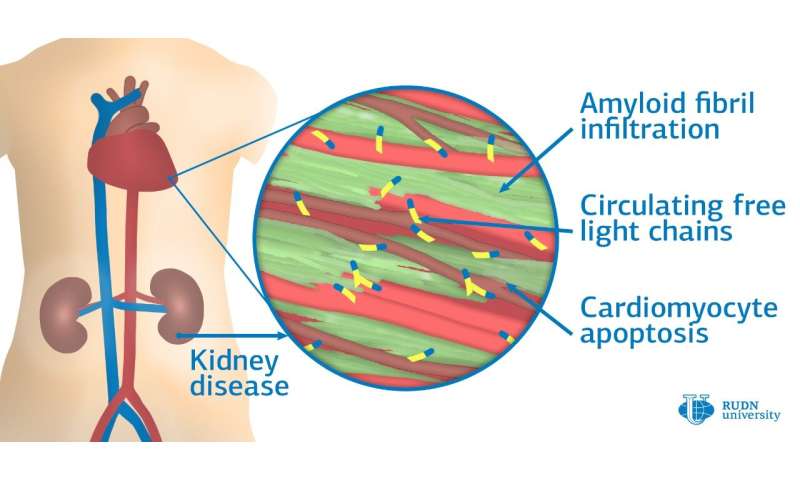
RUDN University physicians have proposed a method for diagnosing the dangerous heart disease AL-amyloid cardiopathy. Until now, doctors could detect it only in the later stages, when treatment is not possible. The results of the study provide effective diagnosis of AL-amyloidosis at an early stage. The results are published in Amyloid.
With amyloidosis, protein metabolism is disrupted in the body and amyloid is intensively deposited between cells in organs and tissues. Deposits of amyloid in the muscle membrane of the heart compress blood vessels or are deposited directly in the walls of blood vessels. The most common form of amyloidosis is light-chain amyloidosis (AL-amyloidosis). It is difficult to diagnose the disease in the early stages since there are no symptoms characteristic only for amyloidosis. Its manifestations are often mistaken for ischemic disease or hypertrophic cardiomyopathy. External signs of the disease appear only in the later stages, when the pathological process has gone far enough, and the probability of death is high. RUDN University physicians proved that AL-amyloidosis can also indicate chronic kidney disease.
Vilen Rameev and Ayten Safarova from RUDN University conducted a study involving 55 patients (33 men and 22 women) who were diagnosed with AL-amyloidosis. The patients were assessed for 44 months using electrocardiography, standard echocardiography and blood tests for the protein NTproBNP, a high concentration of which indicates cardiac decompensation. The tests showed whether the disease was progressing. At the same time, the patients’ kidney function was studied as doctors measured the concentration of protein in the urine, the symptoms of nephrotic syndrome and other indicators.
Patients were divided into two groups: the first group (24 people) had a stable course of the disease and the second group (31 people) had progressive amyloidosis and prognosis of death. When comparing the results, doctors took into account that patients in the second group had a higher baseline level of NTproBNP protein in the blood.
The results showed that in patients with chronic renal insufficiency (stages 3 to 5), the heart condition worsened over time. However, in patients with preserved renal function (stages 1 to 2 of chronic renal insufficiency), the level of NTproBNP in the blood, ECG and echocardiography along with standard results decreased, that is, in patients with normal or almost normal renal function, amyloidosis did not progress.
Source: Read Full Article
